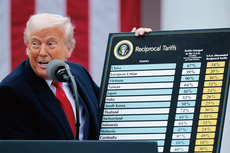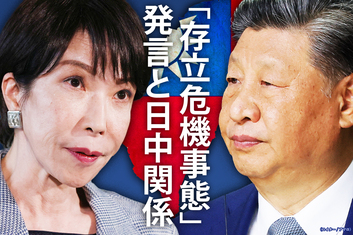The Abbott government will stress the importance of close engagement with China at the same time as it strengthens US alliance cooperation and closer defence ties with key friends and allies such as Japan and Indonesia. Mr Abbott has promised to return defence spending to 2 per cent of Gross National Product (it is currently 1.6 per cent), within 10 years. Neither the Abbott government nor its predecessors regards China as a direct military threat, but there is serious Australian concern about the impact on regional security of growing strategic competition. This is most obvious in the North China and South China Seas over competing sovereignty claims. Australia’s diplomatic efforts will be to urge the peaceful resolution of claims, and to call on China to be more open in explaining the strategic rationale of its military growth.
Among the island states of the Pacific, Australia watches the expansion of Chinese diplomatic and economic influence very carefully. Australia has a special interest in the stability of the region because it forms our immediate neighbourhood and because the international community expects Canberra to lead any military response which may be needed to promote stability in the region. The Australian Defence Force has regularly deployed into the region on disaster relief and stabilisation tasks in the last 15 years. Much of Beijing’s interest in the island states has been aimed at ensuring that local governments don’t provide political support to Taiwan and aid projects and military engagements are used to build Chinese access and influence rather than encourage self-sufficiency. This does not necessarily undermine Australian interests, but it does reflect a very different approach to regional engagement.
In addition to building closer ties with Japan and China, the Coalition government has identified Indonesia and India as high priorities for diplomatic engagement. Prime Minister Tony Abbott has said that Indonesia ‘is our most important single relationship’ but a huge amount of work needs to be done to create a genuine strategic partnership between the two countries. On India. a decision by the Labor Government to lift the ban on uranium exports to India seems to have brought about more positive attitudes to Australia in New Delhi. There is now a prospect that Australia-India defence engagement will grow and trade and economic ties deepen.
Shortly after the December 2012 Lower House election Prime Minister Shinzo Abe suggested that there was potential for a ‘security diamond’ of defence cooperation to emerge between Japan, Australia, the US and India. (Japanese officials are quick to say that this does not reflect current official policy.) There is some attraction to the proposal: all four countries are tough-minded democracies, they support open markets and enjoy strong free media systems. In practice, though, it is likely that progress towards this goal will be slow and limited by the need not to create false impressions in Beijing that China is contained by such an initiative. Explicit strategies to contain China are likely to be counter-productive when the longer term goal must be to bring China into more cooperative defence relations.

















